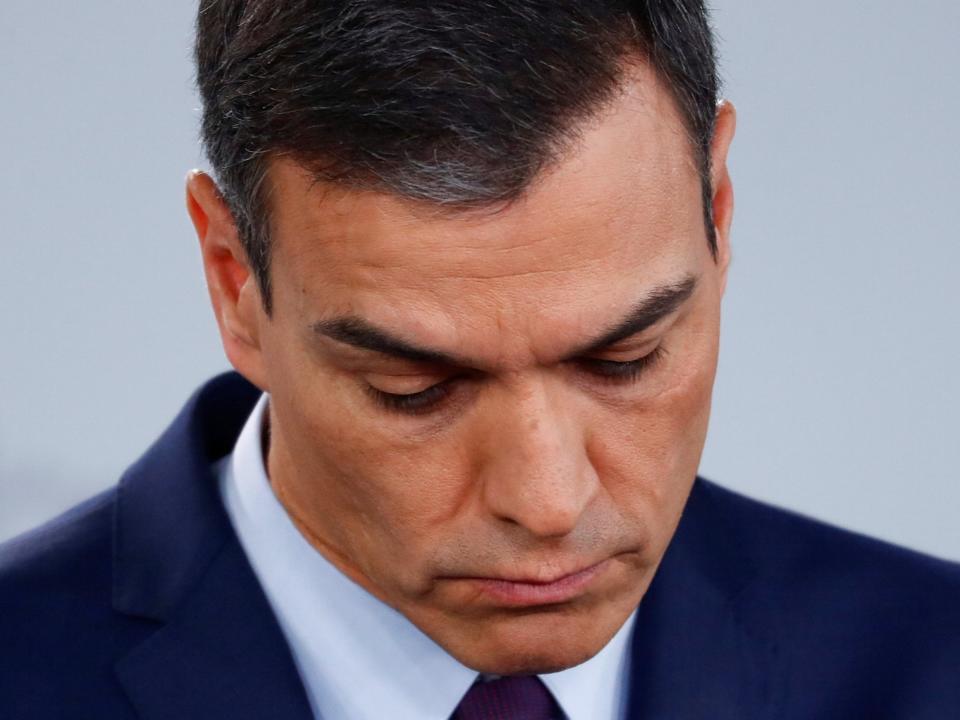Spain election: Socialist prime minister calls early election amid ongoing Catalan crisis
Spain‘s prime minister has called an early general election for April after his government’s budget was voted down.
Pedro Sanchez told a news conference after an urgent meeting of his cabinet that the election will take place on 28 April.
The election, the third in under four years, is a further sign of an increasingly fragmented political scene, with Catalonia‘s independence push dominating recent debate.
Mr Sanchez, already under pressure from within his own Socialist party ranks to cut short his term, lost his weak parliamentary support this week after Catalan separatists joined opposition politicians to vote down his government’s 2019 national spending plans.
Opinion polls in recent weeks have shown that no single party would win enough votes to rule on its own.
Mr Sanchez, who was already under pressure from within his own party ranks to cut his term short, lost the budget vote after Catalan separatists joined opposition politicians to vote down his government’s spending plans for 2019.
“Between doing nothing and continuing without a budget, or giving the chance for Spaniards to speak, Spain should continue looking ahead,” Mr Sanchez said in a televised appearance from the Moncloa Palace, the seat of government.
“I have proposed to dissolve parliament and call elections for April 28,” he added at the end of a speech, during which he highlighted the deeds of his eight months in power.
Mr Sanchez took office after ousting his predecessor, Mariano Rajoy, in June last year, when he won a no-confidence vote triggered by a damaging graft conviction affecting the People’s Party (PP).
But the simple majority of Socialists, anti-austerity and regional nationalist parties that united at the time against Mr Rajoy crumbled in the past week after Mr Sanchez refused to accept talks over Catalonia’s self-determination as part of the ongoing dialogue with separatists.
Without mentioning Catalonia directly, Mr Sanchez said he remained committed to dialogue with the country’s regions and blamed the conservatives for not supporting his negotiations.
While the Socialists currently lead, polls show they and anti-austerity party Podemos would not win enough seats between them to govern, leaving open the question whether the centre-right Ciudadanos party would align with them or join a grouping of the conservative People’s Party (PP) and the far-right Vox party.
Additional reporting by agencies

 Yahoo News
Yahoo News 

